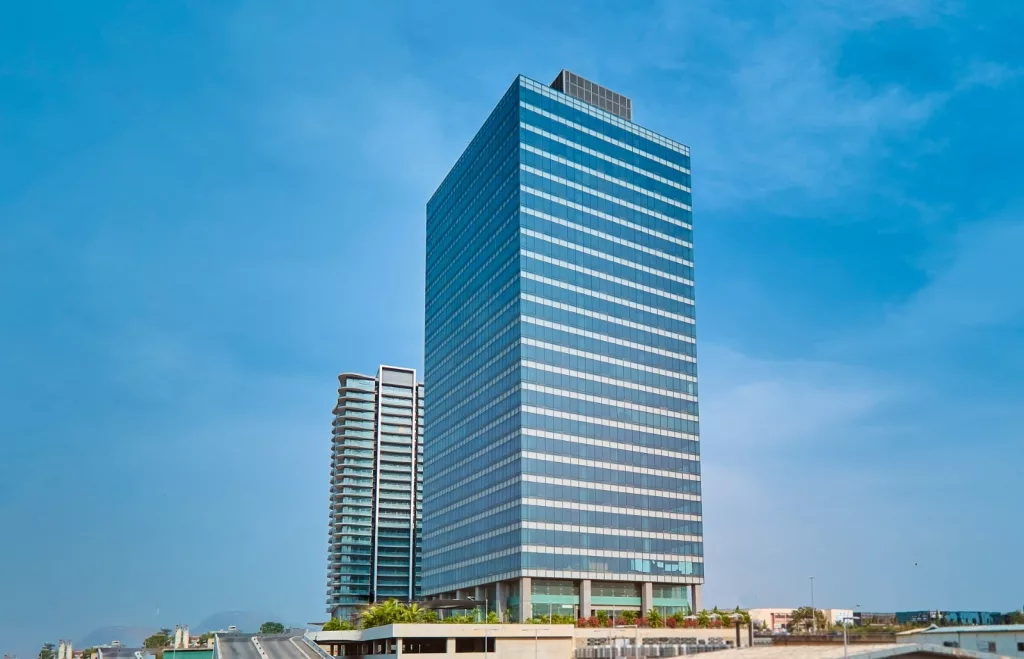Boosting Nigeria’s Tourism: A Unified Approach for Growth

Boosting Nigeria's Tourism: A Unified Approach for Economic Growth
Estimated Reading Time: 8 minutes
Key Takeaways:
- Unity among stakeholders is essential for boosting Nigeria's tourism industry.
- Nigeria is rich in cultural, historical, and natural resources, yet tourism potential remains underutilized.
- Collaborative efforts are crucial to address challenges such as infrastructure, security, and outdated policies.
- The 2025 Destination Nigeria Governors’ Tourism Conference will serve as a vital platform for stakeholders to drive change.
Table of Contents
- Introduction
- The Call for Unity in Nigeria's Tourism Industry
- The Current State of Tourism in Nigeria
- Opportunities in Nigeria’s Diverse Tourism Assets
- Challenges Facing Nigerian Tourism
- The Importance of Modernizing Tourism Policies
- The 2025 Destination Nigeria Governors’ Tourism Conference
- Conclusion
- FAQs
Introduction
Nigeria's tourism industry holds tremendous potential for economic growth and national integration. Despite the abundance of cultural, historical, and natural assets across its 36 states, the sector remains largely underdeveloped. Ayo Omotoso, a renowned tourism expert, emphasizes the need for unity among stakeholders to maximize this potential. This blog post will explore how a collaborative approach, centering on Omotoso's vision, is crucial for revitalizing Nigeria's tourism (https://von.gov.ng/tourism-expert-calls-for-unity-to-boost-nigerias-tourism/).
The Call for Unity in Nigeria's Tourism Industry
Ayo Omotoso recently called for unity among government and private sector actors to enhance Nigeria’s tourism landscape. He advocates that all stakeholders take ownership of their tourism products, focusing on collaboration to drive strategic growth. Key points include:
- Shared Responsibility: Every state must actively promote its unique tourism offerings.
- Collective Vision: Coordinated efforts can position Nigeria as a leading tourist destination in Africa.
- Economic Benefits: A unified approach can create jobs and foster revenue growth through tourism.
Omotoso highlighted the upcoming 2025 Destination Nigeria Governors’ Tourism Conference, scheduled for August 25-26, 2025, in Abuja, as an essential platform for discussing these ideas (https://www.thisdaylive.com/2025/08/05/africa-creative-expo-aims-to-use-tourism-to-address-disparity-in-global-trade/).
The Current State of Tourism in Nigeria
Despite its potential, Nigeria attracted only 1.2 million international tourists in 2023. This is a noticeable decline compared to previous years, particularly when contrasted with nations like Morocco, which welcomed 17.4 million tourists in 2024 (https://blog.gettransfer.com/news/nigeria-tourism-landscape-challenges/). Key challenges include:
- Poor Infrastructure: Inadequate roads and facilities hinder travel experiences.
- Security Concerns: Safety issues deter both international and domestic tourists.
- Insufficient Funding: Limited financial resources restrict marketing efforts and tourism development.
Opportunities in Nigeria’s Diverse Tourism Assets
Nigeria is rich in diverse tourism assets that can be harnessed for growth. With over 45 breathtaking waterfalls, historical sites, and vibrant cultural festivals, there are numerous opportunities to attract tourists. Noteworthy opportunities include:
- Ecotourism: Developing natural reserves and promoting wildlife experiences.
- Cultural Tourism: Showcasing Nigeria's rich heritage through festivals, art, and cuisine.
- Adventure Tourism: Creating unique experiences such as hiking, cycling, and exploration of waterfalls.
By focusing on these unique offerings, Nigeria can differentiate itself and attract a broader range of visitors.
Challenges Facing Nigerian Tourism
Despite the opportunities, several challenges persist in the tourism sector:
- Infrastructure Deficits: Poor transportation and accommodation options limit accessibility.
- Security Issues: Regions plagued by unrest may discourage potential travelers.
- Outdated Policies: Policies governing the tourism sector have not been updated in decades, causing operational inefficiencies.
- Funding Shortages: Lack of financial investment in tourism infrastructure has stunted growth.
Addressing these issues requires a concerted effort from both the government and private sectors.
The Importance of Modernizing Tourism Policies
Modernizing Nigeria's tourism policies is fundamental to improving the sector's competitiveness. Key considerations include:
- Regulatory Revisions: Updating outdated policies to reflect current tourism dynamics is essential for sustainable growth (https://rekayasasipil.ub.ac.id/index.php/rs/article/view/1264/666).
- Investment in Training: Ensuring that tourism professionals are adequately trained will elevate service quality.
- Sustainable Practices: Implementing eco-friendly tourism practices can help preserve Nigeria's natural landscape while also appealing to environmentally conscious travelers.
Investment in policy modernization can generate long-term benefits for Nigeria’s tourism industry.
The 2025 Destination Nigeria Governors’ Tourism Conference
The upcoming 2025 Destination Nigeria Governors' Tourism Conference is positioned as a transformative event for the tourism sector. Key conference highlights will include:
- Exhibits and Showcases: Displaying diverse tourism offerings to attract investment and interest.
- Cultural Integration: Promoting peace and unity through the celebration of Nigeria's cultural landscapes.
- Networking Opportunities: Fostering collaboration between government officials, private sector stakeholders, and tourism practitioners.
This conference aims to bring together key players in the industry to collaboratively enhance and promote Nigeria's tourism potential (https://www.travelandtourworld.com/news/article/tourism-in-nigeria-a-transformative-sector-for-economic-growth-and-national-unity/).
Conclusion
The future of Nigeria's tourism industry hinges on collaborative efforts between government and private sector actors. Ayo Omotoso's call for unity is a timely reminder of the importance of working together to tackle challenges and seize opportunities. By modernizing policies, investing in infrastructure, and effectively marketing Nigeria’s unique offerings, we can position Nigeria as a leading destination for tourists and drive significant economic growth.
FAQs
1. What is the significance of the 2025 Destination Nigeria Governors' Tourism Conference?
The conference serves as a platform for stakeholders to unite and discuss strategies for boosting Nigeria's tourism sector.
2. How can Nigeria enhance its tourism offerings?
Focusing on ecotourism, cultural tourism, and adventure tourism can attract a diverse range of visitors and develop the sector further.
3. What challenges does Nigeria face in its tourism development?
Key challenges include poor infrastructure, security concerns, funding shortages, and outdated tourism policies.
4. How can unity among stakeholders improve Nigeria's tourism?
A collaborative approach can lead to shared responsibilities and coordinated efforts to enhance tourism infrastructure, policies, and marketing strategies.
By recognizing the importance of synergy and collaborative action, Nigeria can realize the full potential of its tourism industry and position itself prominently in the African tourism landscape.











